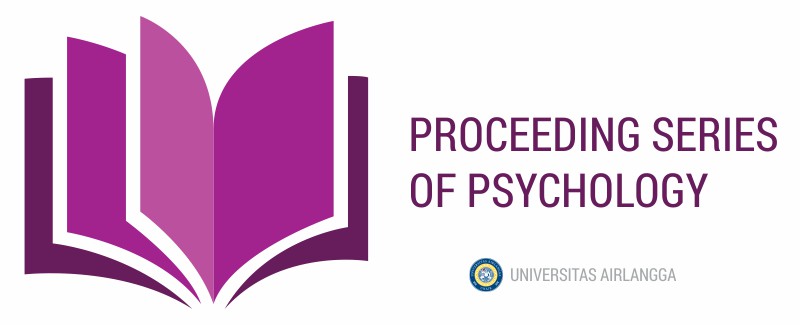Assessment of the Needs of Pregnant Mothers in Psychological Well-Being During COVID-19 Pandemic: A Qualitative Study
Kata Kunci:
COVID-19, Needs Pregnant Mothers, Psychological WellbeingAbstrak
Psychological well-being led to good maternal mental health during pregnancy. It was important to know the needs of pregnant mothers for their psychological well-being. This study aimed to understand pregnant mothers’ needs to fulfill their psychological well-being during the COVID-19 pandemic. A qualitative descriptive study design with semi-structured interviews was adopted. The study was conducted at community health centers in the city of Tangerang, Indonesia. In-depth interviews were conducted with 22 mothers who were pregnant. Data were collected from June to August 2022. Interviews were conducted face to face, audio recorded, and transcribed verbatim. Data were analyzed thematically to develop major themes and subthemes. The initial findings revealed 198 codes, which were then reduced to 122 codes, 73 sub-categories, 30 categories, and 6 themes. There were six themes related to pregnant mothers’ needs for psychological wellbeing during COVID-19, i.e., understanding of psychological changes, awareness to accept their pregnancy, communication skills, good prenatal care, self-healing, and good planning. Care for pregnant mothers needs to develop between physical and psychological aspects. This will help the pregnant mother go through the stages of her pregnancy well, prepare for the delivery process, readiness for the puerperium phase, and minimize mental health problems.
Referensi
Alipour, Z., Kheirabadi, G. R., Kazemi, A., & Fooladi, M. (2018). The most important risk factors affecting mental health during pregnancy: a systematic review. Research article EMHJ.
Braun, V., & Clarke, V. (2019). Reflecting on reflexive thematic analysis. Qualitative research in sport, exercise and health, 11(4), 589-597.
Chou, F. H., Avant, K. C., Kuo, S. H., & Fetzer, S. J. (2008). Relationships between nausea and vomiting, perceived stress, social support, pregnancy planning, and psychosocial adaptation in a sample of mothers: a questionnaire survey. International journal of nursing studies, 45(8), 1185-1191.
Franks, W. L., Crozier, K. E., & Penhale, B. L. (2017). Women’s mental health during pregnancy: A participatory qualitative study. Women and Birth, 30(4), e179-e187.
Hidayat, M. M., Rachmawati, I. N., & Gayatri, D. (2019). Prenatal distress and increased psychosocial risks in the postpartum period among Indonesian women. Enfermeria clinica, 29, 476-481.
Ho-Fung, C., Andersson, E., Hsuan-Ying, H., Acharya, G., & Schwank, S. (2022). Self-reported mental health status of pregnant women in Sweden during the COVID-19 pandemic: a cross-sectional survey. BMC pregnancy and childbirth, 22(1), 260.
Huppert, F. A. (2009). Psychological well‐being: Evidence regarding its causes and consequences. Applied psychology: health and well‐being, 1(2), 137-164.
Jha, S., Salve, H. R., Goswami, K., Sagar, R., & Kant, S. (2021). Prevalence of Common Mental Disorders among pregnant women—Evidence from population-based study in rural Haryana, India. Journal of family medicine and primary care, 10(6), 2319-2324.
Lee Duckworth, A., Steen, T. A., & Seligman, M. E. (2005). Positive psychology in clinical practice. Annu. Rev. Clin. Psychol., 1(1), 629-651.
McLeish, J., & Redshaw, M. (2017). Mothers’ accounts of the impact on emotional wellbeing of organised peer support in pregnancy and early parenthood: a qualitative study. BMC pregnancy and childbirth, 17, 1-14.
McLeod, S. (2007). Maslow's hierarchy of needs. Simply psychology, 1(1-18).
Miles, M. B. (1994). Qualitative data analysis: An expanded sourcebook. Thousand Oaks.
Mathibe-Neke, J. M., & Masitenyane, S. S. (2019). Psychosocial antenatal care: A midwifery context. In Selected Topics in Midwifery Care. IntechOpen.
Omidvar, S., Faramarzi, M., Hajian-Tilak, K., & Amiri, F. N. (2018). Associations of psychosocial factors with pregnancy healthy life styles. PLoS ONE, 13(1). https://doi.org/10.1371/journal.pone.0191723
Ryff, C. D. (2014). Psychological Well-Being Revisited: Advances in the Science and Practice of Eudaimonia. Psychotherapy and Psychosomatics, 83(1), 10–28. https://doi.org/10.1159/000353263
Ryff, C. D., & Singerb, B. (1996). Psychological Well-Being: Meaning, Measurement, and Implications for Psychotherapy Research. Psychother Psychosom, 65, 14–23. https://doi.org/10.1159/000289026
Suleman, Z. E. H., Zeng, R., Holton, S., Le, M., & Rahman, A. (2018). World Health Organization recommendation on psychotherapeutic interventions for common maternal mental health problems among women to improve early childhood development in low and middle income countries.
Vianna, P., Bauer, M. E., Dornfeld, D., & Chies, J. A. B. (2011). Distress conditions during pregnancy may lead to pre-eclampsia by increasing cortisol levels and altering lymphocyte sensitivity to glucocorticoids. Medical hypotheses, 77(2), 188-191.
Yu, Y., Zhang, S., Wang, G., Hong, X., Mallow, E. B., Walker, S. O., ... & Wang, X. (2013). The combined association of psychosocial stress and chronic hypertension with preeclampsia. American journal of obstetrics and gynecology, 209(5), 438-e1.
Unduhan
Diterbitkan
Terbitan
Bagian
Lisensi
Hak Cipta (c) 2024 Lastri Mei Winarni, Rita Damayanti, Sabarinah Prasetyo, Yati Afiyanti

Artikel ini berlisensiCreative Commons Attribution-ShareAlike 4.0 International License.


